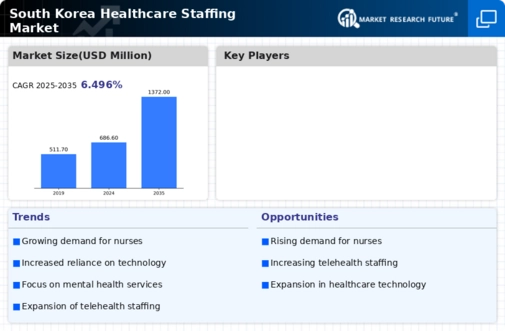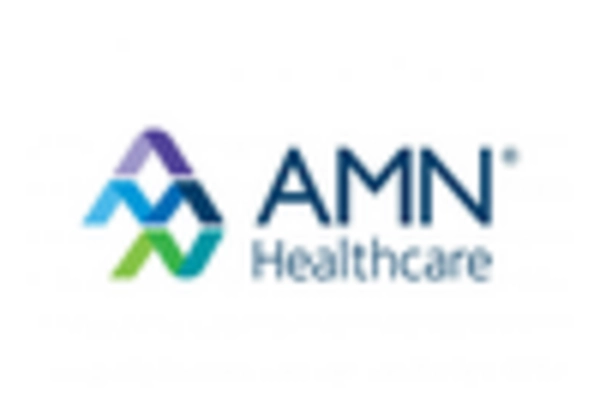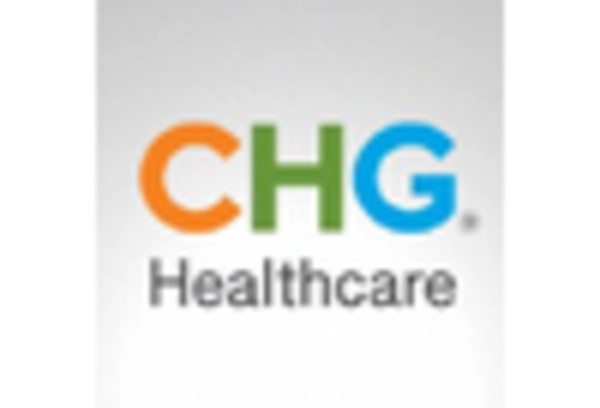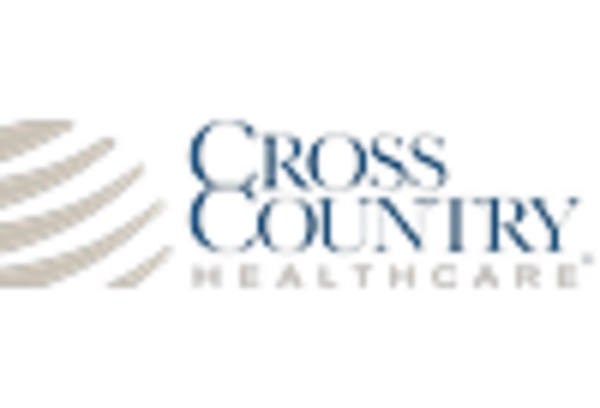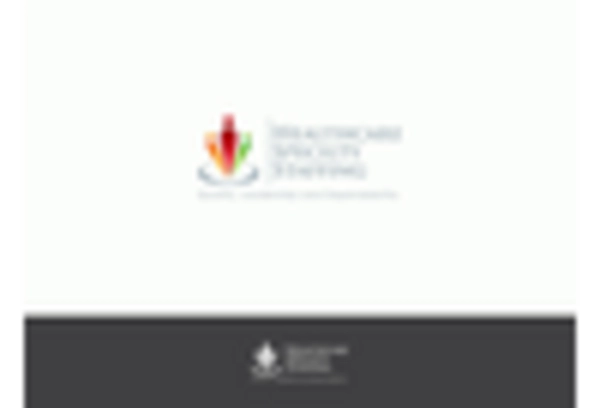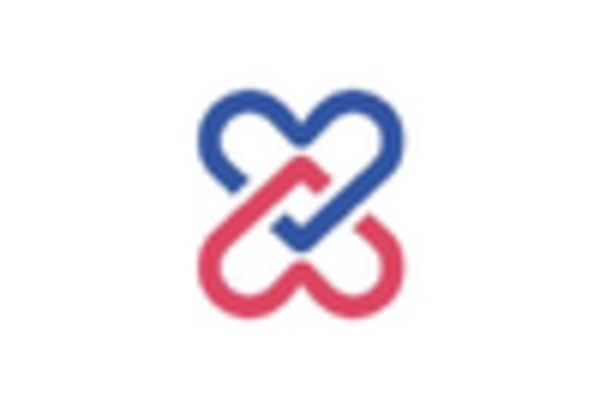Rise in Chronic Diseases
The prevalence of chronic diseases in South Korea is another significant driver impacting the healthcare staffing market. Conditions such as diabetes, hypertension, and cardiovascular diseases are on the rise, necessitating ongoing medical attention and management. According to recent health statistics, nearly 30% of the adult population is affected by at least one chronic condition. This trend creates a sustained demand for healthcare professionals, including nurses, specialists, and support staff, to provide continuous care and monitoring. As healthcare providers strive to improve patient outcomes, the need for a well-staffed workforce becomes increasingly apparent. The healthcare staffing market must respond to this challenge by ensuring that facilities are adequately staffed with qualified personnel capable of managing the complexities associated with chronic disease care.
Aging Population and Healthcare Needs
The aging population in South Korea is a critical driver for the healthcare staffing market. As the demographic shifts, the demand for healthcare services increases, necessitating a larger workforce to cater to the needs of elderly patients. By 2025, it is projected that individuals aged 65 and older will constitute approximately 20% of the total population. This demographic trend indicates a growing requirement for healthcare professionals, particularly in geriatric care, nursing, and rehabilitation services. Consequently, healthcare facilities are compelled to enhance their staffing levels to ensure adequate care for this segment. The healthcare staffing market must adapt to these evolving needs, potentially leading to an increase in recruitment efforts and training programs aimed at preparing a skilled workforce to meet the demands of an aging society.
Technological Advancements in Healthcare
Technological advancements are reshaping the landscape of the healthcare staffing market in South Korea. Innovations such as telemedicine, electronic health records, and artificial intelligence are streamlining operations and enhancing patient care. These technologies require a workforce that is not only skilled in traditional healthcare practices but also proficient in utilizing new tools and systems. As healthcare facilities adopt these technologies, the demand for tech-savvy professionals is likely to increase. Moreover, training programs focused on integrating technology into healthcare practices are becoming essential. This shift may lead to a transformation in recruitment strategies, emphasizing the need for candidates who possess both clinical expertise and technological proficiency, thereby influencing the overall dynamics of the healthcare staffing market.
Increased Focus on Mental Health Services
The growing awareness of mental health issues in South Korea is driving demand within the healthcare staffing market. As societal attitudes shift and stigma surrounding mental health diminishes, more individuals are seeking help for mental health conditions. This trend has led to an increased need for mental health professionals, including psychologists, counselors, and psychiatric nurses. Recent surveys indicate that nearly 20% of the population experiences mental health challenges, highlighting the urgent need for specialized care. Consequently, healthcare facilities are expanding their mental health services, which necessitates a corresponding increase in staffing levels. The healthcare staffing market must adapt to this evolving landscape by ensuring that an adequate number of qualified mental health professionals are available to meet the rising demand for services.
Regulatory Changes and Compliance Requirements
Regulatory changes in the healthcare sector are significantly influencing the healthcare staffing market. South Korea's government has implemented various policies aimed at improving healthcare quality and patient safety. These regulations often require healthcare facilities to maintain specific staffing levels and qualifications for their personnel. Compliance with these regulations is essential for facilities to operate effectively and avoid penalties. As a result, healthcare organizations are compelled to invest in recruitment and training to ensure that they meet these standards. This dynamic creates a robust demand for staffing solutions that can provide qualified professionals who adhere to regulatory requirements. The healthcare staffing market must navigate these complexities, ensuring that the workforce is not only sufficient in number but also compliant with evolving regulations.


